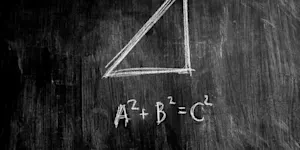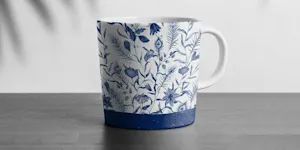What Makes This Word Tick
"Myriad" often refers to an uncountable multitude of something. It paints a picture of countless stars in the night sky or endless grains of sand on a beach. Originally from Greek, with the meaning of 'ten thousand', it lends an air of abundance and infinity to anything it describes.
If Myriad Were a Person…
Imagine Myriad as a seasoned artist who sees beauty in the vast, tangled webs of experience. The artist thrives on variety and cherishes diversity; their studio is a hodgepodge of hues and tools, creating masterpieces filled with complexity and richness.
How This Word Has Changed Over Time
Once upon a time, "myriad" was strictly numerical, representing precisely 10,000. Over the years, it evolved into a versatile term for saying "a lot" with pizzazz. Now, it implies both an exact and inexhaustible number, emphasizing sheer quantity without the need for specifics.
Old Sayings and Proverbs That Use Myriad
The word "myriad" hasn't found its home in many old proverbs, likely due to its later adoption as a common English term. However, it's akin to sayings that speak of infinite possibilities and countless opportunities, like "The world is your oyster" but with a numerical flair!
Surprising Facts About Myriad
Surprisingly, "myriad" has a mathematical cousin in other cultures. In ancient Greece, myriad was simply 10,000 but was often used to describe infinite numbers metaphorically. Today, it bridges the gap between numbers and poetry, adding depth to everyday language.
Out and About With This Word
You might spot "myriad" in places that thrive on exaggeration and excitement, from TV commercials boasting “myriad features” to travel brochures promising "myriad adventures." It adds a touch of grandeur to routine marketing materials.
Pop Culture Moments Where Myriad Was Used
In pop culture, "myriad" makes occasional guest appearances in song lyrics, TV scripts, and novels. It’s used to express diversity and endless options, often when characterizing a never-ending string of events or choices, adding flair and texture.
The Word in Literature
"Myriad" is often seen fluttering through pages of literary fiction and poetry, where authors revel in its rich, expansive connotations. It's the perfect touch for writers looking to evoke a sense of bountifulness and wonder without resorting to bland, overused phrases.
Moments in History with Myriad
Reflecting on historical events, myriad could describe the innumerable stars guiding ancient sailors or the endless possibilities pursued by explorers like Columbus. The spirit of "myriad" encapsulates times when humanity confronted the infinite and unimaginable.
This Word Around the World
In Japan, the number 10,000 has a cross-cultural counterpart known as "man," representing both a literal and figurative multitude. "Myriad" holds its place across languages, echoing the concept of untold numbers and ideas without borders.
Where Does It Come From?
Traveling through time, "myriad" originates from the Greek "murias," which specifically detailed 10,000. Over centuries, it bequeathed its literal chains, morphing into a poetic expression across cultures and epochs.
How People Misuse This Word
Many folks mistakenly plant "myriad" before "of" (e.g., "a myriad of choices"). Though increasingly accepted, purists prefer the simpler "myriad choices" to uphold grammatical tradition, sparking lively debates among language enthusiasts.
Words It’s Often Confused With
Plethora: Often interchanged because both imply abundance, but "plethora" can have a negative connotation.
Copious: Suggests a large amount but focuses more on the volume than the variety.
Multitude: Though it means a large number, it often relates to people or collective entities.
Additional Synonyms and Antonyms
Synonyms for "myriad" include numerous, countless, innumerable, and infinite. While its antonyms lean towards singular, finite, few, and scarce—words that ground us back to the realm of manageable numbers.
Want to Try It Out in a Sentence?
"The garden bloomed in a myriad of colors, each petal whispering the secrets of spring." This sentence saves you from counting every blossom while conjuring the vibrancy of nature with one sweeping word.
















